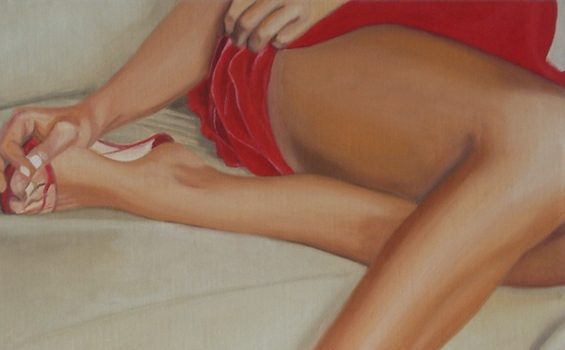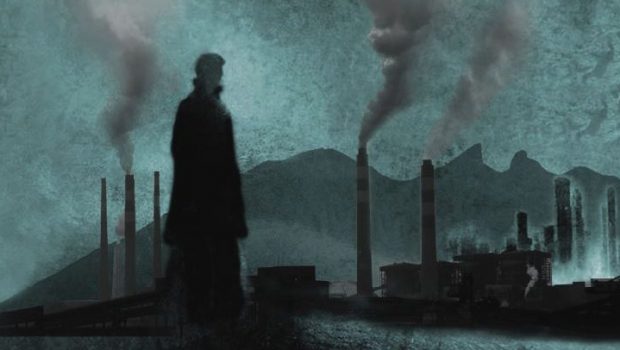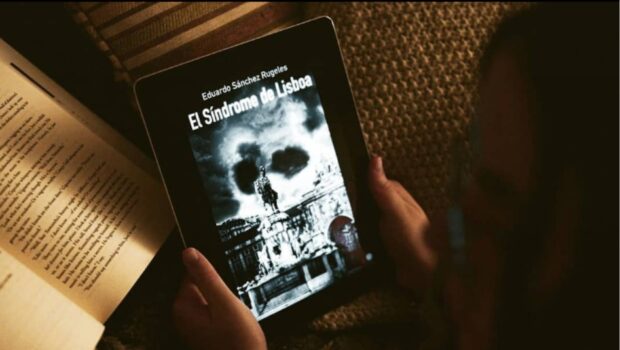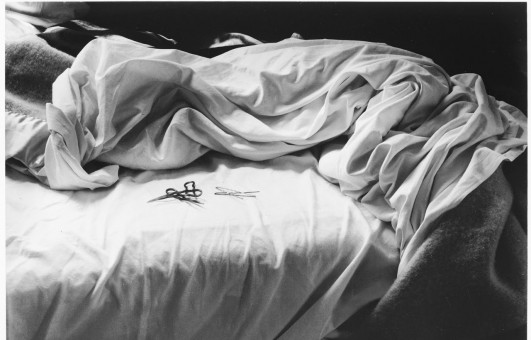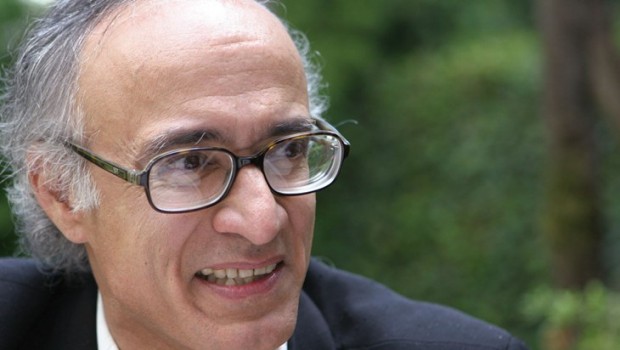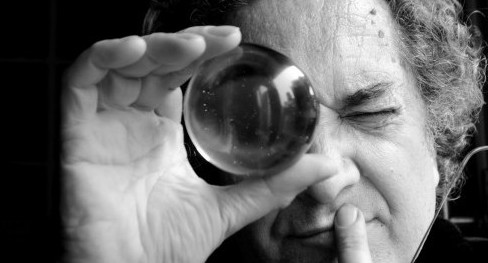Autoethnography With The Other
Cristina Rivera Garza
Translated to English by Francisca González Arias
1. Contact zone
The man never said his name. Perhaps he didn’t know it or perhaps he had decided to hide it. Maybe it had never occurred to him that someone else would want to find out. To know.
He appeared one winter morning, lying on the frozen lawn in the back yard. A slight aroma of alcohol on his lips.
[The aroma had been, from the start, merely imaginary.]
I observed him for a long time, astonished. I had stopped in front of the window for no reason, distractedly, with a cup of hot tea in my hands. I would do this often. I was thinking about winter. I was cold. I avoided answering the phone. It was a Sunday.
Undoubtedly, that’s why I imagined the smell of alcohol. Surely because of that I noticed the pale pink color of his lips. Certainly, that’s why I stayed still. A statue. Winter Sundays lend themselves to this.
When he opened his eyes, his eyes opened me.
The words that surrounded this apparition were: Gray. Enclosed by eyelashes. Windy. Big.
His eyes were all that.
I tried to run away. I tried to turn my back on him. I tried to turn back.
[Statue.]
The man raised a hand, and, with the tips of his fingers touching the fingernails of his other hand, he pointed to his open mouth. Then with the forefinger of his right hand he pointed to his stomach. I didn’t know what to do, how to react. Surely my lack of response made him bring the palms of his hands together and place them in a sign of beseeching, or of prayer just under his chin. His very center.
The man knew about need, and about supplication, of that I had no doubt.
II. A very brief history of classic ethnography
1.European and North American ethnography –beginning of the twentieth century to the First World War. Characteristics: the solitary ethnographer. Objectivity. Complicity with colonialism. Fieldwork at the periphery: Africa, Asia, the Americas.
2.Modernist anthropology: from the post-war to the 1970’s. Search for the “laws” and “structures” of social life. Social realism.
3.The anthropology of political awareness: 1970-1980. Interpretation of cultures. Radical critiques: feminist, political, reflexive. Mea culpa: anthropologists question their complicity with colonial processes.
III. Language
“I,” I’d tell him, pointing to my chest.
“I,” he’d repeat, pointing to my chest.
“No, I am your you,” I’d respond. Gripped by wonder. Peeved.
“You,” he would conclude, pointing to his chest.
IV. Something indescribable, something transparent
During the first three weeks the man moved very slowly through the house. Cautiously, as if he had just recovered from a long illness and was not used to his own body, as if he were an adolescent; as if he really came, as I sensed or imagined, from The Outskirts, he exhibited an unusual staggering that made him totter on the floor instead of walk. One could have easily thought that he was drunk if seen from afar. He would also spend a lot of time motionless looking at the ceiling. Whenever he moved, following me with his tottering from room to room, the man would look insistently, and rather apprehensively behind doors, under the armchairs in the living room, inside corners (when he looked at them, corners did indeed have an inside). He seemed to sense the presence of someone else. He seemed to be distrustful. Perhaps for that reason he didn’t speak.
His silence, interrupted at times by sudden incomprehensible enunciations, pleased me. I didn’t want to know, because I knew that, knowing, I would end up opening the door for him so that he would disappear in the same way he had arrived: at night, anonymously, without warning. And also his presence, which I associated with the cold and famine that winter unleashed in The Outskirts, not only suited me, it was also interesting. Although dangerous, the man’s stay in my house attracted the enigma for the first time. In the city, where everyone knew everything, where nothing could be ignored, there was nothing like an enigma to sharpen awareness, your vision, all your senses. Nothing like an enigma to feel alive or to be alert. For that reason I was always observing him. Soon, days and hours, at least the ones that I spent at home, became for me pure observation. Sometimes from the corner of my eye, or other times brazenly, sometimes methodically, or by pure chance, I’d watch him doing and undoing, moving, staying still. I suppose that I called him the Stranger because even though I could recognize whatever he did, it seemed alien to me. Because the man was my Lack-of-Comprehension. In reality, he was my Lack.
He preferred the dark –that was clear from the beginning. And he also preferred lean foods. He hated salt. It was enough for me to note the thinness of his body, and the rapid, perhaps desperate way in which he’d place food in his mouth to know that eating was not a frequent occurrence in his life; an activity that, in any case, afforded him scant pleasure. His squalid body heightened his attitude of a man on constant watch. Whenever he saw a shadow near the windows, whose curtains he himself had drawn, a glint of alarm would appear in his eyes. He’d withdraw then to some other place. The attitude of an animal that flees. That’s what he seemed like: an animal that flees. An animal that tries to evade the timely arrival of his punishment. That kind of suffering. He had the same reaction to unusual sounds or movements that I still wasn’t completely familiar with. Sometimes it was easy for me to imagine that violence pursued him.
From the start the Stranger showed great interest in household devices. He understood perfectly when I warned him that because the water was contaminated, he shouldn’t drink it from the tap, but he was capable of spending an entire morning investigating how a fruit juicer functions, or the secret mechanism that causes an iron to expel steam. He’d listen to music with his arms on his chest, and his eyes closed: a withdrawal into oneself that recalled religious experiences. Soon, however, the television replaced all that. It became his passion. To be more precise: the images on the TV, because, as soon as I walked away, the Stranger would hurriedly lower the volume. He could laugh, groan, shout, or moan for hours on end in front of mute people who raised their arms or moved their lips. On one occasion, upon raising the volume with the remote control, the man covered his ears with both hands and with very quick jumps retreated to a corner of the sofa. The trembling of his body made him whimper uncontrollably. Curled up on the sofa with tears in his eyes, he made that begging motion again. Something indescribable. Something transparent.
V. Postmodern ethnography
1. Crisis of representation 1986-1990: Reflexive/narrative movement. Theories on race, class, gender. The centrality of the concept of “culture” is displaced. What “fieldwork” consists of is questioned. Poetry and politics are inseparable.
2. Current postmodernity: Universal theories replace local theories. To write ethnography is a conscious and a participatory process. Ethnographies are read and commented by “study subjects.” The permission of participants is essential.
3. Ethnographic authority and authenticity: identity between and among subjects. Autoethnography.
VI. The wind from his impassive eyes messes up my hair
“Where are you from?” I’d ask him from time to time, seemingly distracted but with an unfamiliar edge in my own voice. “What’s your name?” I insisted in murmurs, gritting my teeth.
“Tell me something,” I’d ask him afterwards, beseeching, just as he did, I thought. That look. At that moment the wind from his impassive eyes would mess up my hair.
This: The image of a palm tree almost completely bent by the hurricane’s violent wind. A gray day. A tremendously gray day. A winter day.
VII. Cinema, colonialism, and anthropology were born at the same time (I)
Robert Flaherty, Nanook of the North, 1922.
Black and white. The open tundra. The wind over it; through it. The silence of the ice. In 1920 the anthropologist Robert Flaherty traveled to the Canadian tundra to study the culture of the Eskimos, and when he recorded this experience in images, Flaherty fostered the birth of documentary cinema. Since then we’ve learned that although Nanook of the North was presented as directed, produced, and filmed by Flaherty, those responsible for many of the documentary’s images were the Eskimos themselves. Nanook, moreover, was posing.
Taxidermic ethnography expresses the desire of some scholars to make what is dead seem alive. Cinema, colonialism and anthropology were born at the same time.
VIII. Bilingual quote (Author’s translation)
Escribir etnografía le ofrece al autor la oportunidad de reencontrase con el Otro de manera “segura”, así como de hallar significado en el caos de la experiencia vivida a través de la reordenación del pasado. Es una especie de odisea proustiana en la cual el etnógrafo trata de encontrar significado en eventos cuya importancia era más bien elusiva en el momento en que se estaban viviendo.
Dorinne Kondo, “Disolución y reconstitución del Yo. Implicaciones para una epistemología antropológica.”
“Writing ethnography offers the author the opportunity to reencounter the Other ‘safely,’ to find meaning in the chaos of lived experience through retrospectively ordering the past. It is a kind of Proustian quest in which the ethnographer seeks meaning in events whose significance was elusive while they were being lived.”
Dorinne Kondo, “Dissolution and Reconstitution of Self. Implications for Anthropological Epistemology.”
IX. On the eleventh day the man cut his nails
He had taken a bath on the fifth day of his stay, but he had refused to use the nail clipper, running away as soon as I brandished it in front of his face. He only agreed to use the instrument when after going through all the rooms of the apartment for the thousandth time, he became convinced that there wasn’t, and wouldn’t be, anybody else in the surrounding area. It took him a whole afternoon to cut his fingernails. Another to cut his toenails. When he had finished, he ran to me happily, and with the docile movements of a domesticated animal he placed his hand on my hair.
X. On the twenty-fourth day, the man smiled
What happened before had been a chance movement of his face, a disarrangement of his lips, a twitch. But on the twenty-fourth day, as I was putting lipstick on his mouth and mascara on his eyelashes, the man smiled. It was a Wednesday afternoon. An unusually cold day. All of this in front of a mirror.
XI. On the thirty-eighth day the man discovered money
The first time he touched a coin, he did it gently. Next to his skin that had turned almost white, transparent almost, due to lack of sunlight, the coin shone as if it were gold. Pure gold. It was very heavy. It gave the impression of being very heavy.
And he placed the coin on his lips, on his chest. On his genitals. Then he laughed again. And again.
XII. On the thirty-eighth day the man touched another body
I had forgotten what pleasure was. That kind of pleasure. What happens when the fingers of other hands –I don’t know what these fingers are feeling—rest, with their own temperature, their own exile, their own nerve endings, on your skin. Inside.
Barbara Myerhoff, Number Our Days, 1978; In Her Own Time, 1986: Anthropology of what surrounds us, within the very context of anthropology. I had forgotten all this:
1.The weight of another body on one’s body –the immobility that this produces, the beginning of suffocation, claustrophobia. The impulse to run.
2.The unequivocality of penetration –the way in which the erect penis, suddenly solid, in all appearances indestructible, opens what has to be opened. The impulse to run.
3.Breathing. Impulse.
4.The most personal reverberations of sound. Beyond words. Interior sound. (Im)pulse.
5.Taste. Pulse.
6.Pulse. Agitation.
Marlon Riggs, Tongues Untied, 1989. Anthropology and the filming of one’s own body.
XIII. Language again.
“You,” he announced in the middle of winter.
“You,” he said, pointing to his breastbone. Then he placed himself behind me and started to tear off my clothes. Moaning on the back of my neck, biting my shoulders. His saliva along my spine. His pleasure.
“You,” he whispered. “You.”
Breathing.
It was still the thirty-eighth day.
XIV. Cinema, colonialism, and anthropology were born at the same time (II)
Margaret Mead, Bathing Babies in Three Cultures, 1952.
Black and white. Produced, directed, and narrated by Margaret Mead this early example of ethnographic cinema shows everything that the anthropologist saw, and all her interpretations regarding the ways in which three women from different places and cultures –a village in Bali, Iatmul de Sepik in New Guinea, and the United States in 1950—bathe their babies. A comparative vision.
Taxidermic ethnography expresses the desire of some scholars to make what is dead seem alive. Cinema, colonialism and anthropology were born at the same time.
XV. Anthropology and context
“Don’t tell me you’ve got a guy in your house,” she said as she peeled an orange, examining, rather than looking at me with her dark round eyes full of sorrow, or of nothing. Surely, there was a hint of alarm in her voice, but there was also curiosity, mischievousness, perversion. The desire to know and the desire to watch.
I could have said, “And if I had a guy in my house, so what?”
I could have said, “What do you care.”
I could have said, “And wouldn’t you like to have one?”
I could have burst out laughing.
But I said:
“Of course not!” in that quick, immediate way our culture uses to cover up the guiltiness we feel when we lie, without completely succeeding, but rather, achieving just the opposite. That is: reproducing the guilt and the lie, and the immediacy of the two combined. At any rate, I said it so convincingly that I almost came to believe it while she continued to peel the orange very slowly, in an almost ritualistic way, producing a very long piece of peel approximately a centimeter wide which, as the orange wedges were exposed, fell on the floor, as solid things do, succumbing to gravity. One sole strip. A strip of peel that filled the room with a pungent, light, almost adolescent aroma. Oranges. Ah, oranges in winter, its only compensation.
“The girls have started to say things,” she paused, and searching for my eyes as I gazed at the fruit, she continued, “you know.”
“What things?” I asked without really wanting to, and because of that, because it had been an automatic reaction, she looked at me as if she were right in front of Nanook, or the Balinese mother bathing her baby. I mean, she looked at me with that type of condescension, with that kind of mistrustful distance.
“What do you mean, what things?” she exclaimed, exasperated. Then, just as suddenly she calmed down. “It would be terrible, you know that, don’t you? Simply awful.”
Then she opened the orange, and with a skillful movement of her hands she pulled out the first wedge. A drop of juice, a drop of something that seemed from a distance to be very sweet, ran down the back of her hand. On her skin.
“Yes,” I managed to whisper. “I know.”
Somewhere a palm tree. The wind against it. All around. The wind.
When she finished peeling the orange she offered me one of the orange wedges, and unperturbed by my refusal, as if she hadn’t even noticed, she placed it in her mouth of very white teeth. The process of grinding.
XVI. James Clifford, et al., Writing Culture, 1986
These essays suggest that anthropology is a form of writing, of narrating, and of creating literature about the representation of the other.
Fieldwork, and the text that emerges from this encounter is a negotiation, through which one arrives at an accord about “textual power” and how it will be shared between the anthropologist and the subject.
They assert that feminist anthropology has not contributed anything to experimental and literary ethnography.
Mary Louise Pratt’s argument: all ethnography forms part of a rhetorical system. In ethnographies, for example, there exists the convention of “the contact zone” –the key moment of the anthropologist’s arrival at the exotic place.
XVII. Illiteracy
He would come to my desk, and looking over my shoulder he’d try to see what I was writing on the black lines of the page in my notebook. My behavior at that moment was unusual: instead of closing it, I’d smile at him and bring it closer to his face. As I did that –opening up the notebook, showing it to him—I wondered if I would have done that, if I would have dared to do it, if he had known how to read. I wondered if his intrusion would have provoked such pleasure, such laughter. And so I realized that I trusted in his ignorance as much as in mine. His ignorance prevented me from feeling afraid or offering resistance. His ignorance was half of our salvation. The other half was my own ignorance.
XVIII. Watching
The Woman of the Orange knocked on my door on a Wednesday afternoon. I had just gotten home from the institute where I was doing my anthropological research, and because of that my eyes were tired, and I was in a rotten mood. I had already drunk a glass of water and taken off my coat and shoes. I had massaged my neck. When I heard the knocking on the door I wanted to run to warn him. And that’s what I did. I went through the entire house until I found him. He looked at me with that wind that blew my hair before he dashed, bent over, toward my bedroom closet. Like an animal that flees. Like an animal awaiting punishment.
“You’ll probably think my visit odd,” the woman affirmed as soon as I opened the door.
“That’s true,” I replied quickly, without inviting her in, visibly alarmed. “Is anything wrong?”
I thought she would answer me. I thought that she’d make up some excuse to justify her presence. I thought that at the very least she’d ask permission to enter my space. But the woman came in and looked around the living room with a freedom I had not granted her.
“Since we’ve hardly seen you recently, I thought it would be a good idea to pay you a visit,” she murmured while she took off her gloves and undid her scarf. “I thought perhaps you needed to talk with someone you trust.”
Her coming left me motionless by the side of the half-open door with my hand around the doorknob. From there I observed her comings and goings in the living room, the scandalous way in which she sniffed around corners, angles, windows.
“I’m tired,” I said, because I didn’t know what else to say. And also because it was true.
The woman sat next to me and put her hand on my knee.
XIX. Cinema, colonialism, and anthropology were born at the same time (III)
Ishi, the Last Yahi, 1967.
In August of 1967, Ishi, the last surviving Yahi, left the hills near Mount Lassen, the area where his tribe had hidden for approximately forty years. From 1911 to 1916, the year in which he died of tuberculosis, Ishi lived in the Anthropology Museum of the University of California in San Francisco, sharing information about his culture and his language with the anthropologists Alfred Kroeber and Theodore T. Waterman, and the surgeon Saxton T. Pope. During those years Ishi participated in recording Yahi myths, songs and cultural narratives, which form part of this black and white ethnographic film.
Taxidermic ethnography expresses the desire of some scholars to make what is dead seem alive. Cinema, colonialism and anthropology were born at the same time.
XX. The end of the private world
It was a Sunday when I took him to the movies. I wanted to have fun, it’s true, but I also wanted to see his reaction. His relationship with images, his resistance to sound, and his position as spectator intrigued me. Besides, I also needed some air. I wanted to see him in other contexts. I wanted to make him real. The movie theatre offered the protection of darkness, the almost certain possibility of anonymity. If the Stranger and I were to go unnoticed it could only be at the movies. That great theatre of the world.
And that’s how it was. I saw him. He walked by my side but not near me. He walked by my side but within himself, bound to his vision of the city, to his own wonder. Unleashed, in reality. He gazed greedily, as if he were touching everything with his eyes. As if everything that was touched produced pleasure. He collided into other pedestrians, he’d look at them, and just like a savage, or a cannibal he consumed them at that very moment of sudden contemplation. A wedge of orange in a mouth. A drop of sweet liquid on skin. He walked rapidly, and took in big gulps of air; he smiled often. He was overcome with emotion. Emotion was destroying him. In the cinema it was hard for him to keep quiet, to stay still. But when the theatre went dark, and the first image appeared he became completely motionless. An almost religious paralysis kept him glued to his chair until the credits finished rolling.
“Me,” he whispered at the end, with an impassive expression, pointing to his chest.
“You,” I managed to stammer before the lights came on.
He had the look of a sad woman. That grimace.
XXI. Hungry, vengeful, efficient
I knew, of course, that it was a possibility. The city wasn’t very big, and on weekends during winter, going to the movies was almost natural, or even mandatory. We could have gone to the lake, I suppose. Or waited until the midnight showing. Or not gone anywhere, just stayed together, inside the house, day after day, night after night, forever. I had heard that some very stubborn or determined women had managed on occasion, and in places not very far from the city where I lived to do something like that: to live shut up but with another for many years, for a whole lifetime even. I also suppose that if I didn’t do that it was because I wanted to be found out. I didn’t have a choice. Undoubtedly, I wanted to be seen. When shortly after returning home I got a call from the Woman of the Orange, I wasn’t surprised. Nor was I afraid.
“We saw you today, she said.” Then, because I didn’t reply, she added, “you’ve been lying to us.”
At that moment I was looking at the Stranger who was lying down in front of the window, just as immobile as he’d been in front of the screen, observing the world. Outside the world was covered with a thin layer of ice.
“Yes,” I assented in a very low voice.
“But how could you….” stammered the woman. Then, in response to my silence she hung up.
I went over and hugged him. We stayed like that for a long time, embracing each other. And that’s how they found us when they kicked in the apartment door.
Their fuss didn’t separate us. On the contrary. Their arrival forced us to hug each other more tightly, more afraid. I curled up within his chest. At times, he did the same.
Finally, one of them said:
“You should have told us about this discovery. Didn’t you know that?”
I nodded without showing my face. The man smelled of fear, of lip gloss, and of false eyelashes.
“Your punishment,” said another. “Do you know how you’ll be punished for what you’ve done?”
I nodded again, this time looking right at them.
“Yes, I know,” I repeated. I thought of the palm tree that in some other part of the world was bending under a powerful hurricane gale. A gray day. A cold day. Then I saw his eyes and the wind –that wind—messed up my hair.
“And even then ….” her astonishment was so great that she was unable to finish the sentence.
“Even then,” I said, trying to take my hair out of my eyes, lying. In reality, I didn’t know. I had heard –because it was inevitable—all the rumors about it, but I had always refused to know. To know that. When, as was their custom, the foremothers told those macabre stories, I thought that it was better not to know. I thought that if I knew I could never manage to have enough courage, or to be bold enough. I thought that, if I didn’t know, when the time came I would be daring. From that moment I was on the side of ignorance, and I defended it by calling it the enigma. But now ignorance was lashing out at me. And the truth, the truth that I had refused to accept from the beginning, was laughing at me. It was wreaking revenge.
The rest happened too fast. One of the women began to take photographs of the Stranger, of both of us together, hugging, while the others searched for proof of his living in my house. Clothes. Videos. Notes. Messages. Anything. They seemed like criminals, although in reality they were like a horde of savages. Hungry, vengeful, efficient. The women moved around the tight space of the apartment, and with their hurried work they made it seem even smaller. Soon nothing was left intact. Soon, they codified everything. The first thing that they put away in a big canvas bag was my notebook with the black lines.
“Where will you take him?” I asked when the Stranger, with that look that was both indescribable and transparent, was led handcuffed towards the door.
“Where we always take them,” said the Woman of the Orange winking at me. I was going to ask what place that was, but at the last moment I realized that to ask that question would incriminate me even more than having opened the doors of my home to him. I realized that instead of making that indescribable and transparent look that I knew so well in him, the expression that had indeed been the key with which he entered my house, I would let him go. I realized that if I had known that things would be like that, that they were always like that, I would never have been bold or dumb enough to open the door.
“Does it have to be this way?” I said, trying a last appeal. Begging, in reality.
“You know it does.”
When the operation was over I made a cup of tea and with it in my hands I went to the window. I stood there for a long time. If no trace had remained of his body’s silhouette on the icy grass, I would have convinced myself that the Stranger had been an imaginary fact. But there it was, next to the bare walnut tree, to the side of the curving gravel path that brought visitors to my door. There it was: a slight imperfection on the grass’s consistency. Something that only a good observer would have detected.
XXII. Punishment
I didn’t find out that he knew how to read until much later, when normality reestablished itself in my house. When once again I took long, silent walks. When I returned to the back yard to prepare the soil for summer vegetables. It was then while cleaning the sofa on which he had once curled up, paralyzed by the sheer terror produced by sound, that I discovered the sheet of paper. Without a doubt it was from my notebook with the black lines.
It said: “Punishment is this: this.”
It was the writing of someone who had recently become literate, or of someone who flees. An animal from the Outskirts. A cannibal.
Afterwards everything returned to its usual rhythm. After reading. I worked eagerly again, with discipline, with pleasure even. Again I got together with the girls who said things-you-know-what-things in dimly lit places where we divided oranges into segments, and smoked blue cigarettes. I waited for summer as they did, the few days of summer. Something. I began to use the same teacup. Once in a while I’d read the letter that the man had written hidden from me in one of the few moments that I didn’t see him. It said only one thing. It said: “Punishment is this: this.”
Tautological.
XXIII. Museum of Anthroplogy of the University of California, San Francisco, 1911-1916
Sometimes Ishi looks through the window. This way.
[Black and white ethnographic film.]
Taxidermic ethnography expresses the desire of some scholars to make what is dead seem alive. Cinema, colonialism and anthropology were born at the same time.
Posted: April 29, 2014 at 6:42 pm





